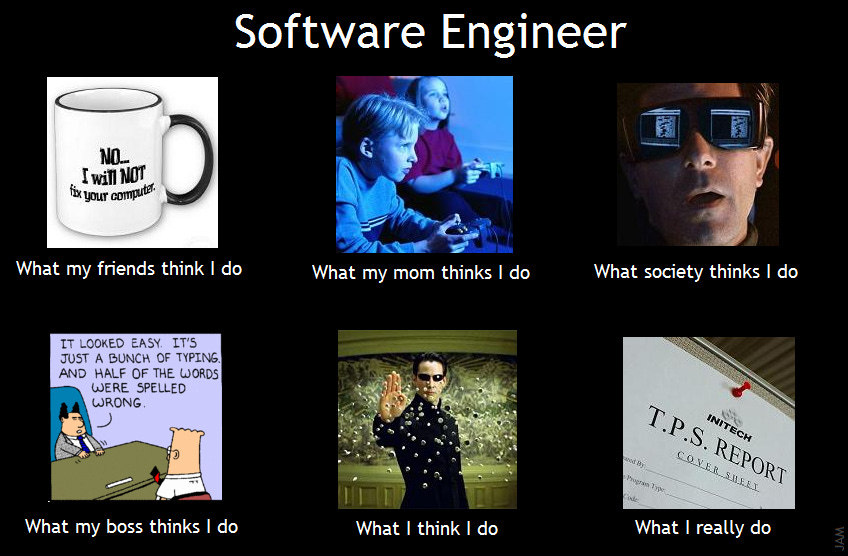
Introduction:
Becoming a software engineer is an exciting and challenging journey. As I reflect upon my first year in this field, I realize that it has been a transformative experience filled with valuable lessons. In this article, I will share some of the most significant lessons I’ve learned as a software engineer, drawing upon both technical expertise and practical examples. From the importance of continuous learning to the power of collaboration, these lessons have shaped my perspective and contributed to my growth as a professional in the ever-evolving world of technology.
1. Embrace Continuous Learning: Expanding Horizons in a Dynamic Field
In the realm of software engineering, staying up-to-date with the latest technologies and trends is crucial. Technology evolves rapidly, and to remain relevant, one must adopt a mindset of continuous learning. As Bill Gates once said, “Technology is just a tool. In terms of getting the kids working together and motivating them, the teacher is the most important.”
During my first year, I realized the significance of immersing myself in learning opportunities such as online courses, workshops, and attending tech conferences. Not only did these activities enhance my technical skills, but they also exposed me to new perspectives and innovative solutions. The ever-expanding nature of the field demands that software engineers be lifelong learners.
2. Prioritize Problem Solving: Analyzing Challenges with a Systematic Approach
A core aspect of being a software engineer is problem-solving. Whether it’s debugging code or designing a complex system, the ability to approach challenges with a systematic mindset is invaluable. As Steve Jobs once said, “I think everybody in this country should learn how to program a computer because it teaches you how to think.”
In my first year, I encountered numerous obstacles that required careful analysis and strategic thinking. I quickly learned that breaking down problems into smaller, manageable components is essential. Applying algorithms and data structures appropriately can help in finding efficient solutions. Additionally, seeking feedback from peers and mentors proved instrumental in honing my problem-solving skills.
3. Collaborate Effectively: Harnessing the Power of Teamwork
While individual skills are important, effective collaboration is key to achieving success as a software engineer. In a highly interconnected world, no project is developed in isolation. Collaboration fosters innovation, diversity of thought, and accelerates progress. As Linus Torvalds, the creator of Linux, famously said, “Software is like sex: it’s better when it’s free.”
During my first year, I had the opportunity to work on cross-functional teams. Embracing the principles of agile development and utilizing collaboration tools like version control systems and project management platforms enhanced our productivity and enabled us to deliver high-quality software. I learned the importance of effective communication, active listening, and respecting diverse perspectives to foster a collaborative environment.
4. Test Early, Test Often: Ensuring Quality and Reliability
Software engineers are responsible for delivering reliable and robust solutions. Testing plays a vital role in achieving this goal. Testing early and testing often reduces the likelihood of encountering critical issues down the line. As Alan Page, author of “The Art of Software Testing,” emphasized, “The sooner you can find bugs, the cheaper they are to fix.”
In my first year, I witnessed firsthand the consequences of inadequate testing. An overlooked bug in a critical module led to system failure, causing significant delays and frustration. This experience taught me the importance of comprehensive testing methodologies, including unit testing, integration testing, and continuous integration/continuous deployment (CI/CD) pipelines. Implementing a robust testing strategy ensures the reliability and stability of software products.
Conclusion: A Journey of Growth and Adaptation
The first year as a software engineer is a transformative period filled with valuable lessons. Embracing continuous learning, prioritizing problem-solving skills, fostering effective collaboration, and ensuring robust testing are among the essential takeaways. As I look back at the challenges I faced and the triumphs I achieved, I am grateful for the opportunity to be part of such a dynamic and ever-evolving field.
By approaching software engineering with a growth mindset and embracing the wisdom of industry pioneers, we can adapt to the changing landscape and drive innovation forward. As the field continues to evolve, I eagerly look forward to applying these lessons and continuing my journey of growth and development as a software engineer.
















